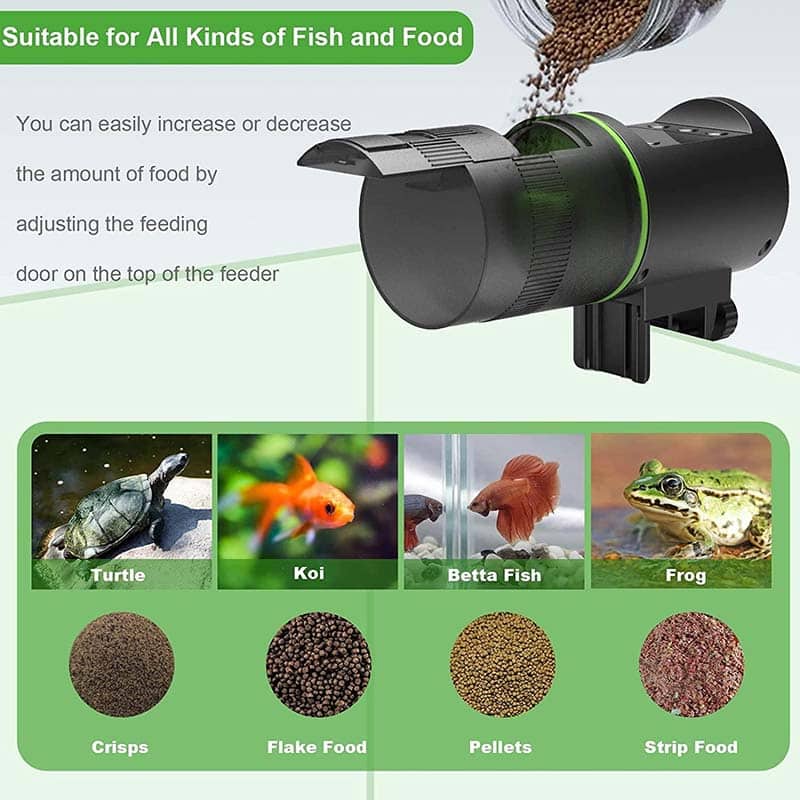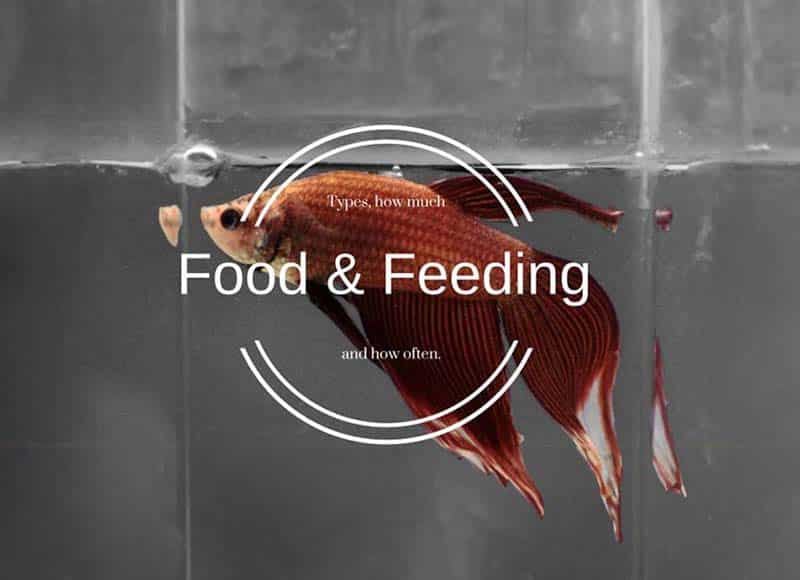What happens when you leave your Betta fish for an extended period to go on vacation, a business trip, or for any other reason?
You might wonder how to feed your Betta fish when you’re away or how long they can survive without food. The last thing you want is for your pet to pass away before you return home.
In this guide, National Park Aquarium will discuss everything you need to know about leaving Betta fish for a long time. You’ll learn how long they can go without eating and the various methods you can use to provide them with food when you’re away.
How Long Can Beta Fish Go Without Eating?
Most Betta fish can survive for about 10-14 days without food. Although Betta fish are often picky eaters, they have a stomach the size of their eye, so they don’t need a lot of food to survive.
In the wild, Betta fish can live from several days to even a few weeks without receiving suitable food. This is because food can be scarce in their natural environment, and their robust bodies are accustomed to entering periods of hunger.
However, remember that Betta fish in this state can be very weak and more susceptible to illness. If starvation doesn’t kill them, stress or some disease will, so you should not leave your pet unfed for a long time.

What Happens When Betta Fish Go Without Food?
When Betta fish go without food for an extended period, they can become lethargic. The Betta fish will weaken and not move much. Here are the fasting timelines and the effects of not having food for Betta fish.
Short-term fasting (Maximum 2-3 days): Mature Betta fish can typically withstand a few days without food without significant stress or health issues. Their metabolism allows them to switch to a fasting mode, although this is not ideal.
Mid-term fasting (3-7 days): Extending the fasting period beyond a few days begins to exceed the safety limit. The fish will start using stored energy (fat and muscle) for sustenance, which is not good for long-term health. They may also become more susceptible to illness.
Long-term fasting (more than 7 days): After a week without eating, the risks significantly increase. Prolonged fasting can lead to malnutrition, weakened immune system, and more serious health problems, including death in severe cases.

Water quality: Lack of food can reduce the waste produced by the fish, but it is essential to continue monitoring and maintaining water quality, as poor water quality can exacerbate health problems.
Behavioral changes: Betta fish may become less active and show signs of stress, such as color loss when they do not have food for a long time.
Increased susceptibility to disease: Weaker fish are more likely to get infections and diseases.
Digestive issues: Long-term fasting can also cause digestive problems when you resume feeding, so you should start feeding slowly and with easily digestible foods.
Interactions with other fish species: If you have a community tank, hungry betta fish may become more aggressive or conversely, more likely to be attacked by other fish species.
Video source: GPB Channel
Tips To Keep Your Fish Healthy While You’re Away
If you must leave your fish unattended due to unavailability, there are a couple of alternatives to ensure they remain adequately fed during your absence:
1. Use an Automatic Feeder
The biggest challenge you’ll face when you’re away is ensuring your Betta fish are fed regularly.
To ensure your beloved Betta fish are fed, consider purchasing and using an automatic feeder. This device will distribute a small, regular amount of food and can be set for as long as you like. This means your Betta will have something to eat even when you’re not there to feed it.

2. Block Feeder
A feeder block is a large block of food that you put in the tank before going away for a while. These blocks will gradually decompose in the tank and release food for your Betta fish.
Your fish won’t be able to eat more than they need because it takes time for the block to release food into bite-sized pieces.
However, there are some known issues with feeder blocks. One of them is that you can’t control how much your fish eat. Overfeeding betta fish is very dangerous as some fish will continue to eat as long as they can see food.

3. Feeding your Betta fish a Diverse Diet
A diverse diet is crucial for maintaining their health, so ensure your automatic feeder has a variety of fish food.
Some feeders allow you to load specific food portions for your Betta, which would be ideal for maintaining your Betta’s health when you’re away. Provide a mix of high-quality dry and wet food, as well as occasional treats like brine shrimp or bloodworms.

4. Do a Partial Water Change
Betta fish can survive without food for a while, but they always need clean water. Without it, you might return to a weak or dying Betta, even if you’re using an automatic feeder.
Ensure your Betta tank is clean and filled before leaving (change at least 50% of the water). If using tap water, a water conditioner will remove chlorine and other pollutants.
5. Ensure Their Health Before Departure
Maintaining your fish’s health while you’re away can be challenging, so ensure they’re healthy before you leave.
Observe your fish a few days prior to your departure. If they’re sick, they’ll need more care, ideally from another pet enthusiast. If your beloved pet is in good health, there’s nothing to worry about and you can proceed as planned.
Even if your actions may be somewhat limited, knowing your pet’s health will at least prevent surprises when you return.

Conclusion
Betta fish can survive up to 14 days without food, but this is stressful for them and not recommended. It’s essential to know how long your betta fish can go without food before you travel and what preparations are needed to keep them healthy.
Ensure that your tank and betta fish are properly prepared at least a week before you leave. Use pet-sitting tools, automatic feeders, or feeding blocks to ensure your betta fish doesn’t go hungry.
Learn More:
- Betta fish spitting out food (why an how)?
- Betta fish not eating (top 10 reasons)




